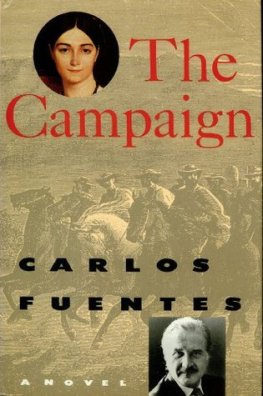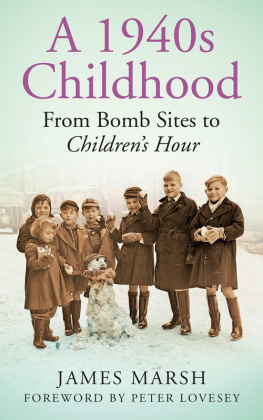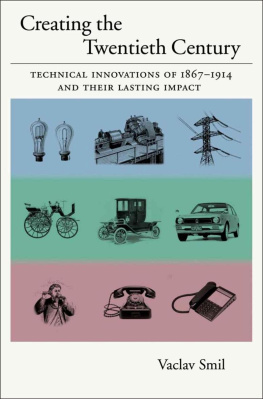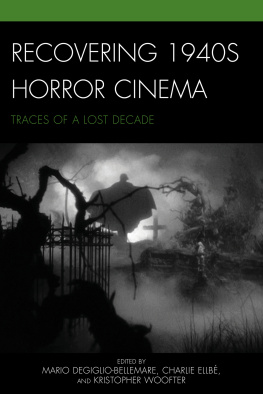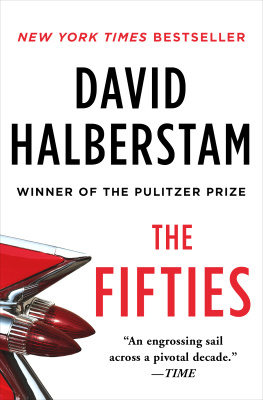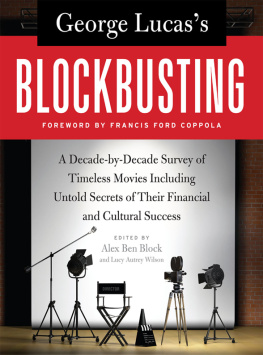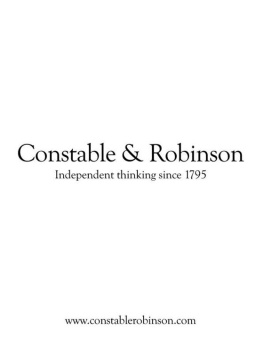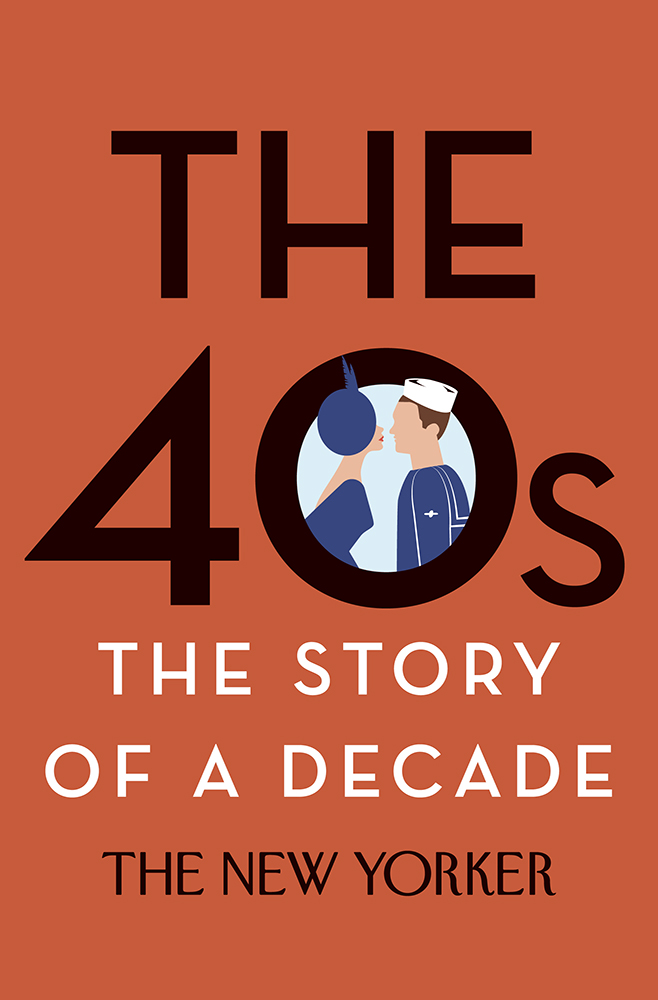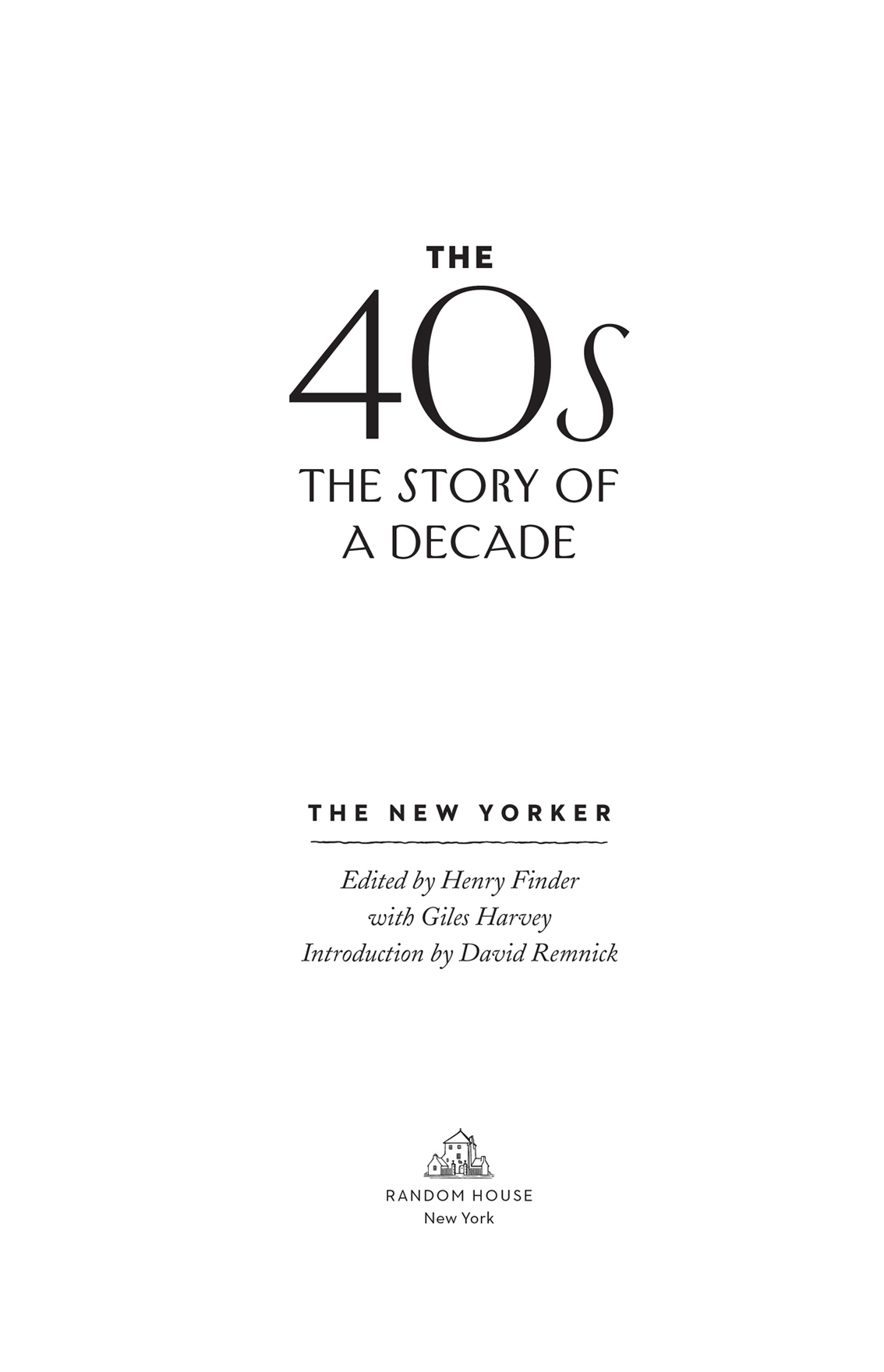Finder Henry - The 40s: the story of a decade
Here you can read online Finder Henry - The 40s: the story of a decade full text of the book (entire story) in english for free. Download pdf and epub, get meaning, cover and reviews about this ebook. City: New York;Estados Unidos;United States, year: 2015;2014, publisher: Random House Publishing Group;Modern Library, genre: Art. Description of the work, (preface) as well as reviews are available. Best literature library LitArk.com created for fans of good reading and offers a wide selection of genres:
Romance novel
Science fiction
Adventure
Detective
Science
History
Home and family
Prose
Art
Politics
Computer
Non-fiction
Religion
Business
Children
Humor
Choose a favorite category and find really read worthwhile books. Enjoy immersion in the world of imagination, feel the emotions of the characters or learn something new for yourself, make an fascinating discovery.

- Book:The 40s: the story of a decade
- Author:
- Publisher:Random House Publishing Group;Modern Library
- Genre:
- Year:2015;2014
- City:New York;Estados Unidos;United States
- Rating:3 / 5
- Favourites:Add to favourites
- Your mark:
The 40s: the story of a decade: summary, description and annotation
We offer to read an annotation, description, summary or preface (depends on what the author of the book "The 40s: the story of a decade" wrote himself). If you haven't found the necessary information about the book — write in the comments, we will try to find it.
Including contributions by
W. H. Auden
- John Cheever
- Janet Flanner
- John Hersey
- Langston Hughes
- Shirley Jackson
- A. J. Liebling
- William Maxwell
- Carson McCullers
- Joseph Mitchell
- Vladimir Nabokov
- Ogden Nash
- John OHara
- George Orwell
- V. S. Pritchett
- Lillian Ross
- Stephen Spender
- Lionel Trilling
- Rebecca West
- E. B. White
- Williams Carlos Williams
- Edmund Wilson
And featuring new perspectives by
Joan Acocella - Hilton Als
- Dan Chiasson
- David Denby
- Jill Lepore
- Louis Menand
- Susan Orlean
- George Packer
- David Remnick
- Alex Ross
- Peter Schjeldahl
- Zadie Smith
- Judith Thurman
The 1940s are the watershed decade of the twentieth century, a time of trauma and upheaval but also of innovation and profound and lasting cultural change. This is the era of Fat Man and Little Boy, of FDR and Stalin, but also of Casablanca and Citizen...
Finder Henry: author's other books
Who wrote The 40s: the story of a decade? Find out the surname, the name of the author of the book and a list of all author's works by series.

